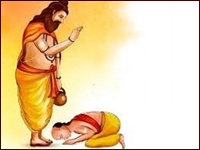 A fourth-year medical student had just finished top of his class at university.
A fourth-year medical student had just finished top of his class at university.
His parents were so proud of him they gave him a holiday in Nepal for a month-long trek to clear his mind and prepare him for his next year’s study.
While in Nepal the young man met an Indian guru who told him of the futility of Western society and culture – always striving for success and being dependent on someone else’s failure so you can be successful. “That will never make you happy”, the guru told him. “Give up all this competitiveness and come and live with us in a community where we all love each other and where no-one is trying to take anything away from anyone else.”
The young man had finished five years of private schooling and four years of university and was ripe for this kind of influence.
He rang his parents from Kathmandu and said he was dropping out of medical school and going to live in an Ashram.
You can imagine how pleased they were to hear this.
Six months later they received a letter from their son:
“Dear Mum & Dad
I know you weren’t pleased with me for dropping out of medical school, but I can’t tell you how happy I am. For the first time in my life, I feel good about the way I’m living. I’ve got the poison of competitiveness out of my system. This new way of life is so in harmony with the essence of my inner being that in only six months I’ve become the No 2 disciple in the whole Ashram, and I reckon I’ll be the No 1 disciple by the end of the year.”
Irony and self-awareness were clearly not the lad’s strong suits.
The late Rabbi Sacks wrote, “Those who are naïve about human nature find themselves disappointed again and again.
“Revolutions, protests, and civil wars continually take place because people think that removing a tyrant or having a democratic election will end corruption, create freedom and lead to justice and the rule of law. People are surprised and disappointed however, when that does not happen. All that happens is a change of faces in the corridors of power.”
After the French Revolution, Napoleon was more dictatorial than Louis XVI. After the Russian Revolution, Stalin was far more brutal than the Czar, and after the Cultural Revolution, Chairman Mao was more autocratic and murderous than any of the Emperors of the Chinese dynasties.
Each of these tyrants – Napoleon, Stalin and Mao – as well as fomenting anti-sovereign hatred – also held a deep hostility towards God:
“We will never be free until we strangle the last king with the guts of the last priest”, proclaimed French philosopher Denis Diderot.
Charming.
As with our young man in the Ashram, what the people who support these tyrants naïvely overlook is the inability of human beings to prevent the abuse of power and position once it has been attained.
The threats to Australia – and the Western world – are not climate change or health epidemics or economic instability, they are in the slow takeover of every aspect of our lives by those who seek more and more power over us.
What we are witnessing is the ascension of a new authoritarianism.
“Know everything in order to control everyone,” said Adam Weishaupt.
And technology and mass surveillance will allow governments to do just that – know everything.
The State is accumulating more and more power – all, of course, in the name of ‘fighting crime’ or ‘public health’ or ‘protecting children’ or ‘social cohesion’. Yet it always turns out the same – a compliant and submissive population.
The Commonwealth Parliament, supported by both major parties, has just rammed through the Combatting Antisemitism, Hate and Extremism (Criminal and Migration Laws) Act 2026.
As Liberty Itch’s Steve Holland reports, “The subsequent political fallout for the so-called ‘Liberal’ Party comes as no surprise.
“The Liberal Party is no longer the liberal political movement it once claimed to be. Justifiably, the Nationals aren’t interested in a coalition partner that has abandoned its principles by supporting laws that are completely antithetical to its stated values and platform.
“It is a bitter betrayal by those who claim to safeguard our liberties. While primary blame lies with the Labor Government for concocting such appalling laws, the Liberal Party’s complicity is especially disgraceful given its supposed commitment to free speech and individual freedom. As is often the case, hypocrisy amplifies the backlash.”
In England, zone restrictions have been introduced preventing motorists from driving from one part of town to another.
In Holland, banks are tracking what people spend their money on with a ‘carbon emissions summary’ – from food to airline tickets to petrol – noted on their receipts.
In Australia, smart meters are being used to control people’s power usage remotely.
What you buy, what you say, where you go, how much power you use …
Sig Samuel wrote, “This is religion minus all the God stuff. These atheists are more religious than Christians!”
The State, its gurus and high priests every bit as dogmatic and dictatorial as you’ll find in any sect, cult or Ashram, has become the new religion.
We must stand firm.
Thank you for your support.
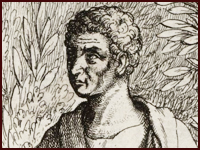 First coined by the Roman poet Decimus Junius Juvenalis, ‘Who guards the guardians?’ is a question that has been invoked throughout the past two thousand years – most notably in the Magna Carta of 1215 and the US Declaration of Independence of 1776.
First coined by the Roman poet Decimus Junius Juvenalis, ‘Who guards the guardians?’ is a question that has been invoked throughout the past two thousand years – most notably in the Magna Carta of 1215 and the US Declaration of Independence of 1776.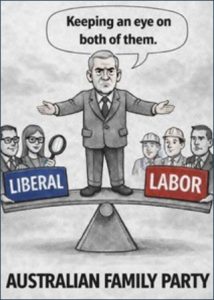 In South Australia, the Labor Government is spending somewhere in the vicinity of $50m on political advertising dressed up as ‘community information’.
In South Australia, the Labor Government is spending somewhere in the vicinity of $50m on political advertising dressed up as ‘community information’. In Act 1 of Shakespeare’s great play Macbeth, the three witches appear before Macbeth and his friend Banquo. The witches predict that Macbeth will be king, and that one of Banquo’s sons will also be king one day.
In Act 1 of Shakespeare’s great play Macbeth, the three witches appear before Macbeth and his friend Banquo. The witches predict that Macbeth will be king, and that one of Banquo’s sons will also be king one day. Christmas story No. 1:
Christmas story No. 1: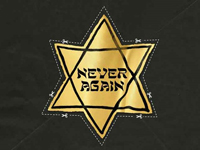 “Every person who has participated in a pro-Palestinian march, every university campus, every politician who marched over the Sydney Harbour Bridge in lockstep with Islamist fanatics, every single media commentator who has echoed some kind of sympathy for the Islamist, pro-Palestinian cause has blood on their hands today.” – Rowan Dean
“Every person who has participated in a pro-Palestinian march, every university campus, every politician who marched over the Sydney Harbour Bridge in lockstep with Islamist fanatics, every single media commentator who has echoed some kind of sympathy for the Islamist, pro-Palestinian cause has blood on their hands today.” – Rowan Dean In a much-quoted exchange, a pollster once asked an Australian voter the following question: “Going into this election, and thinking about the average voter, what would you say is the biggest problem facing Australia today – ignorance or apathy?”
In a much-quoted exchange, a pollster once asked an Australian voter the following question: “Going into this election, and thinking about the average voter, what would you say is the biggest problem facing Australia today – ignorance or apathy?” Standing Guard
Standing Guard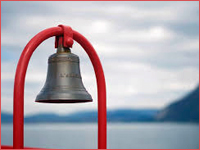 It’s been said that ‘Optimists learn English, pessimists learn Chinese, and realists learn how to use an AK47.’
It’s been said that ‘Optimists learn English, pessimists learn Chinese, and realists learn how to use an AK47.’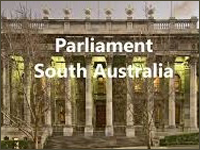 At the Australian Family Party, we have always believed in building a stronger nation — through Defence, Economy, and Family.
At the Australian Family Party, we have always believed in building a stronger nation — through Defence, Economy, and Family. A number of years ago, my wife and I visited Israel. We had hired a car and had been driving for a number of hours in northern Israel along the border with Lebanon then through the Golan Heights stopping at a number of Druze villages along the way.
A number of years ago, my wife and I visited Israel. We had hired a car and had been driving for a number of hours in northern Israel along the border with Lebanon then through the Golan Heights stopping at a number of Druze villages along the way.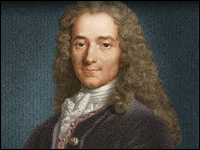 François-Marie Voltaire, the world’s most famous atheist, once proclaimed that although he didn’t believe in God, he employed devout Christians to be his accountant, his cook and his barber because, he said, ‘I don’t want to be robbed, poisoned or have my throat slit!’
François-Marie Voltaire, the world’s most famous atheist, once proclaimed that although he didn’t believe in God, he employed devout Christians to be his accountant, his cook and his barber because, he said, ‘I don’t want to be robbed, poisoned or have my throat slit!’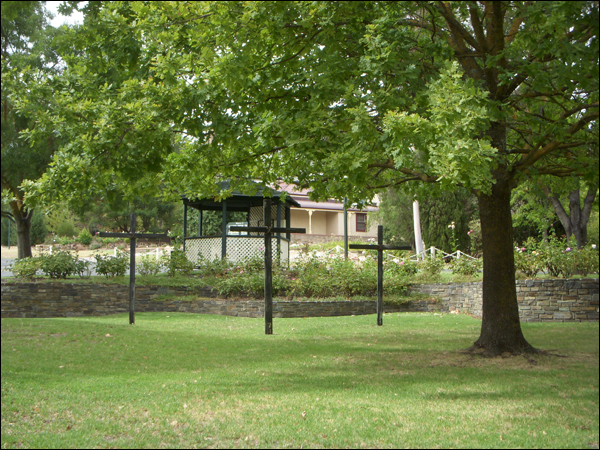
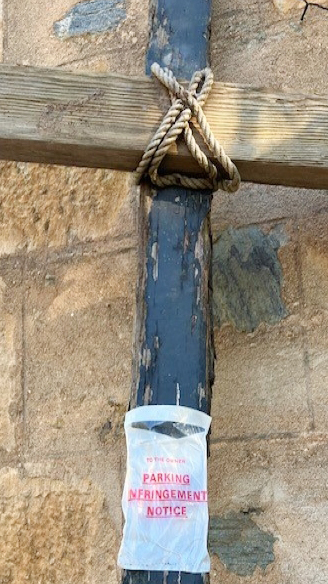 Not only had the crosses been removed, but a ‘Parking Infringement Notice’ had been attached to one of them together with a card inviting the reader to contact the Council for further information. This I subsequently did, only to be threatened with ‘another fine’ if the church didn’t immediately repair the slight depression in the ground where the crosses once stood!
Not only had the crosses been removed, but a ‘Parking Infringement Notice’ had been attached to one of them together with a card inviting the reader to contact the Council for further information. This I subsequently did, only to be threatened with ‘another fine’ if the church didn’t immediately repair the slight depression in the ground where the crosses once stood!